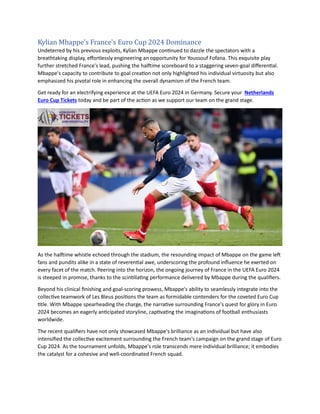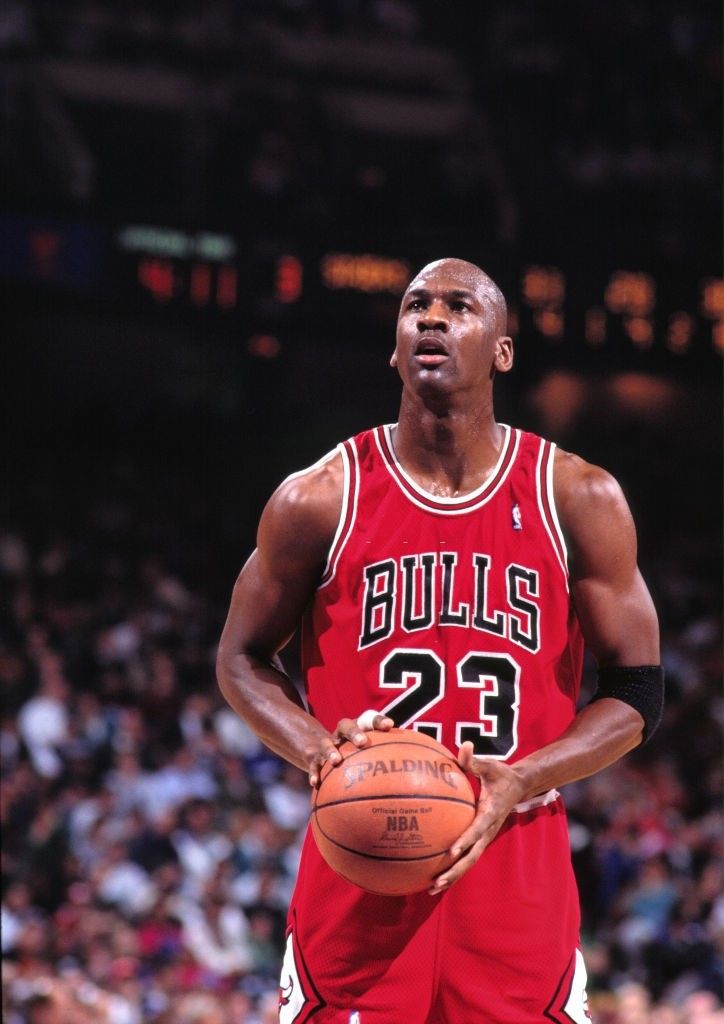“The Profound Impact of Football on French Society
Related Articles The Profound Impact of Football on French Society
The Profound Impact of Football on French Society

Football, or le football as it is known in France, transcends the realm of mere sport; it is a cultural phenomenon deeply interwoven into the fabric of French society. From the bustling cities to the quiet rural villages, the passion for football permeates all aspects of life, influencing national identity, social cohesion, economic activity, and even political discourse. This article delves into the multifaceted impact of football on French society, exploring its historical roots, its role in shaping national pride, its contribution to social integration, its economic significance, and its occasional entanglement with political issues.
A Historical Tapestry: Football’s Evolution in France
The origins of football in France can be traced back to the late 19th century, with British expatriates introducing the game to the country. Initially, football was primarily played in schools and universities, but it gradually gained popularity among the working class. The establishment of the Fédération Française de Football (FFF) in 1919 marked a significant milestone, providing a formal structure for the sport’s development.
The interwar period witnessed the rise of professional football in France, with clubs like Olympique de Marseille, Red Star Olympique, and FC Sète emerging as dominant forces. The first official French league, Division 1, was established in 1932, further solidifying football’s position in the national sporting landscape.
The post-World War II era saw football’s popularity surge, fueled by the emergence of legendary players like Raymond Kopa and Just Fontaine. The French national team, Les Bleus, began to make its mark on the international stage, participating in the FIFA World Cup and the UEFA European Championship.
National Identity and Pride: Les Bleus as a Symbol of Unity
Football plays a pivotal role in shaping and reinforcing French national identity. Les Bleus, the French national team, serve as a powerful symbol of unity, bringing together people from diverse backgrounds under a shared banner of national pride. When the national team triumphs, the entire nation rejoices, transcending social, economic, and ethnic divides.
The 1998 FIFA World Cup, hosted and won by France, remains a watershed moment in the nation’s history. The victory sparked an outpouring of national euphoria, uniting the country in a collective celebration. The team, composed of players from various ethnic backgrounds, became a symbol of a multicultural and inclusive France.
The success of Les Bleus in subsequent tournaments, such as the UEFA Euro 2000 and the 2018 FIFA World Cup, has further solidified football’s role in fostering national pride. The players are not merely athletes; they are national heroes, admired and emulated by millions of French citizens.
Social Integration and Community Building: Football as a Bridge
Football serves as a powerful tool for social integration, bringing together people from different social classes, ethnic backgrounds, and religious beliefs. The shared passion for the game transcends social barriers, creating a sense of community and belonging.
In underprivileged neighborhoods, football clubs often serve as vital social hubs, providing young people with a safe and structured environment. These clubs offer not only sporting opportunities but also educational programs, mentoring services, and social support, helping to steer young people away from crime and delinquency.
Football also plays a crucial role in integrating immigrants into French society. The sport provides a common ground for people from different cultural backgrounds to interact and build relationships. Many successful French footballers have immigrant backgrounds, serving as role models for young people from similar communities.
Economic Impact: A Multi-Billion Euro Industry
Football is a significant economic driver in France, generating billions of euros in revenue each year. The professional football leagues, particularly Ligue 1, attract substantial investment from sponsors, broadcasters, and investors.

The economic impact of football extends beyond the professional leagues. The sport supports a vast network of businesses, including sports equipment manufacturers, apparel companies, and hospitality providers. Football also generates significant tourism revenue, attracting fans from around the world to attend matches and visit football-related attractions.
The construction and renovation of football stadiums create jobs and stimulate economic activity in local communities. Major sporting events, such as the UEFA European Championship, can have a significant positive impact on the host cities, boosting tourism and creating employment opportunities.
Political Entanglements: Football as a Reflection of Society
Football is not immune to political influences, and the sport has often been used as a platform for political expression. Politicians recognize the power of football to mobilize public opinion, and they often associate themselves with successful teams and players.
The issue of racism in football has been a recurring problem in France, as in many other countries. Incidents of racist abuse directed at players have sparked public outrage and led to calls for stricter measures to combat discrimination in the sport.
The French government has taken steps to address racism in football, implementing policies to promote diversity and inclusion. However, the problem persists, highlighting the need for continued vigilance and action.
Challenges and Controversies: Addressing the Darker Side of the Game
Despite its many positive contributions, football in France also faces challenges and controversies. Hooliganism, match-fixing, and financial mismanagement are among the issues that plague the sport.
Hooliganism, or violence among football fans, has been a persistent problem in France, particularly among supporters of rival clubs. The authorities have implemented measures to combat hooliganism, including increased security at stadiums and stricter penalties for offenders.
Match-fixing, or the manipulation of match results for financial gain, is a serious threat to the integrity of football. Several cases of match-fixing have been uncovered in France, leading to investigations and prosecutions.
Financial mismanagement is another challenge facing French football clubs. Some clubs have struggled to manage their finances effectively, leading to debt and even bankruptcy. The authorities have implemented regulations to promote financial stability and prevent clubs from overspending.
The Future of Football in France: Embracing Innovation and Inclusivity
The future of football in France looks bright, with the sport continuing to evolve and adapt to changing social and economic conditions. Innovation and inclusivity will be key to ensuring the long-term success of football in France.
Technological advancements are transforming the way football is played and consumed. Video Assistant Referee (VAR) technology has been introduced to improve the accuracy of officiating, while data analytics are being used to enhance player performance and team strategy.
Efforts are being made to promote greater inclusivity in football, with initiatives to encourage participation among women, people with disabilities, and individuals from underrepresented communities. The French Football Federation is committed to creating a more diverse and equitable sporting environment.
Conclusion: A Cultural Institution with Enduring Significance
Football holds a unique and significant place in French society. It is more than just a game; it is a cultural institution that shapes national identity, fosters social cohesion, drives economic activity, and occasionally intersects with political discourse. While challenges and controversies persist, the enduring passion for football in France ensures its continued relevance and influence for generations to come. The triumphs and tribulations of Les Bleus, the vibrant atmosphere of the stadiums, and the shared camaraderie among fans all contribute to the rich tapestry of French football culture. As France continues to evolve, football will undoubtedly remain an integral part of its national identity and a source of pride for its citizens.

